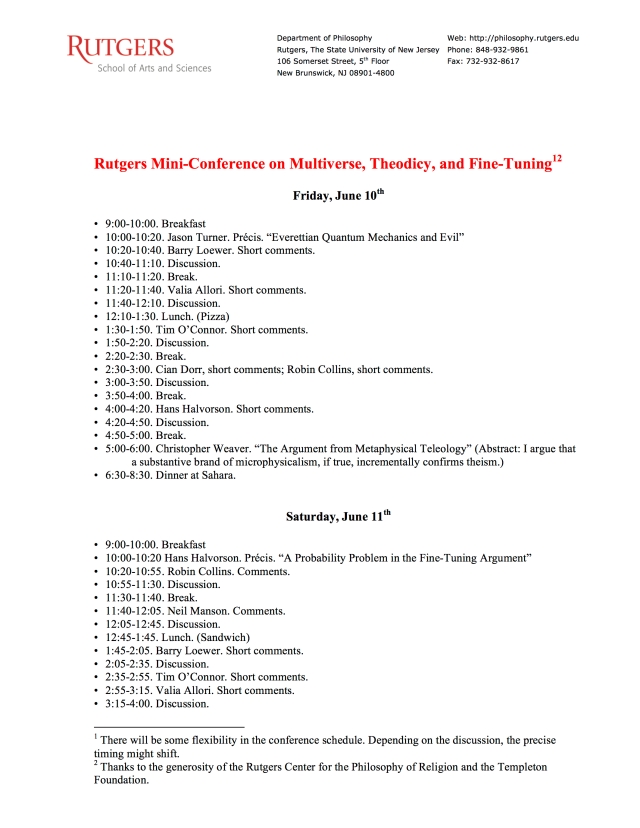I’m writing on behalf of Dean Zimmerman to invite you to a two-day pre-read workshop (June 10-11, 2016) at Rutgers University on the intersection of philosophy of physics and philosophy of religion. Our two topics are: (1) Everettian Multiverse and the problem of evil; (2) the use of probability in the fine-tuning arguments for design. Please see below for the abstracts.
Our main speakers and commentators include:
Organizers:
Dean Zimmerman (Rutgers)
Eddy Keming Chen (Rutgers)
===========ABSTRACTS================
Title: Everettian Quantum Mechanics and Evil
Abstract: The problem of evil has been around for a long time: How can an all-powerful and all-good God allow evil of the sorts we see in the world? If the Everettian interpretation of quantum mechanics is correct, though, then there is a lot more evil in the world than what we see. This suggest a second problem of evil: If Everettianism is true, how can an all-powerful and all-good God allow evil of the sort we don’t see? If the original problem of evil already pushed you into atheism, worries about Everettianism aren’t likely to make much difference. On the other hand, even if you have reconciled the evils we know about with theism to your satisfaction, you may be troubled by the extra Everettian evils. These evils, I will argue, pose an extra challenge for theism. I do not say the challenge cannot be met; some extant responses to the old problem of evil, if successful, may work against the new problem, too. But some won’t. As a result, the challenge is strictly harder: every solution to it is also a solution to the old problem of evil, but not every solution to the old problem of evil is a solution to it.


Hi Eddy!
RSVP This sounds really exciting!
Thank you!
Best, Bix
Pingback: Back | Not Even Wrong